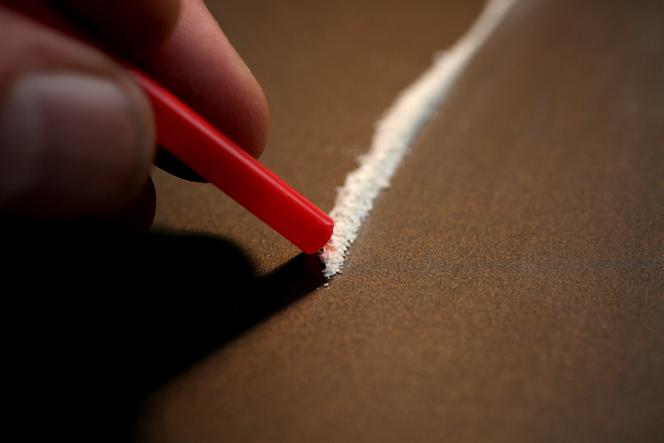


After taking a public stance against Sniffy powder in May, outgoing Health Minister Catherine Vautrin has decided to take action. On Wednesday, July 24, she announced that she had signed a ban on the energizing product, which is set to take effect within the week.
The Minister had been awaiting a green light from the European Commission, which she had asked on June 3 for authorization to ban Sniffy. During a visit to the Paris SAMU teams at Necker Hospital on Wednesday, Vautrin justified her decision to ban the substance, stating that "the connection to illicit products [was] obvious" regarding this originally inhalable white energizing powder. In May, the French tobacconists' confederation had also taken a stand against this product with its cocaine-like appearance, as had several addictologists, who were calling for it to be banned.
In response to the controversy surrounding its product, Power Factory had already withdrawn its Sniffy inhalation powder from the market on June 5, stating that it had never intended to encourage its customers to consume cocaine. Since then, the company has sold only an oral version of the powder.
The Sniffy trademark was registered in mid-2023. According to the manufacturer's official website, updated since the controversy, this energizing powder "boosts your energy almost instantly or more diffusely over time depending on the mode of administration (sublingual or oral)." It comes in sweet flavors (passion fruit, strawberry candy, mint, etc.), and initially seemed to be aimed at a young audience, believing the product to support consumers in their studies and exams. Now, Sniffy explains on its website that its powder is useful for staying awake and/or focused and supports users during physical exercise or mental exertion or even at night.
The product's ingredients – L-arginine, caffeine, creatine, L-citrulline, taurine, beta-alanine, and maltodextrin – are reminiscent of energy drinks. Together, these stimulants are intended to invigorate those experiencing temporary fatigue.
Except, unlike energy drinks, this white powder was originally intended to be inhaled through the nose using a pipette. The practice was reminiscent of cocaine use, as denounced by political leaders and addictologists opposed to its sale.
The product is available at 14.80 euros for a one-gram vial and is mainly sold on the Internet. Philippe Coy, president of the Tobacconists' Confederation, told Agence France-Presse in May that the number of tobacconists selling the product was estimated at no more than a few dozen.
Sniffy's detractors have questioned the product's mode of administration more than its ingredients: "There's no point in beating about the bush: It's designed to maintain confusion and give the impression that you're consuming cocaine, having the effects of cocaine, without it being cocaine," addictologist Amine Benyamina, president of the French Federation of Addictology, told Le Monde in May, deploring the manufacturer's cynicism. "It's ethically and morally scandalous to offer Red Bull or Gatorade [energy drinks] in powder form," he said.
The association Addictions France was also concerned about the trivialization of cocaine and, aggravating circumstances, the sweet flavors that would attract the youngest.
While the gesture raised questions among addiction specialists and politicians, it didn't seem to appeal to the sensibilities of the Marseille-based company. "A white powder inhaled through the nose? Sniffy is legal," the brand said.
On its website, Sniffy restricts the sale of its product to adults and advises consumers to consult a health professional to assess the risks of its consumption. While initially recommending starting with small doses and increasing as you go along, the manufacturer now simply warns consumers not to exceed the maximum daily dose – estimated at two grams a day, the equivalent of two vials – and invites users to avoid any interaction of Sniffy with alcohol or medication.
"This limitation on consumption is not based on anything scientific. It's just a way for them to protect themselves legally," said Professor Benyamina. "What's more, you can't buy this product in a pharmacy; a tobacconist isn't going to explain the instructions for use and the limitations."
In addition to overdosing, this substance's adverse effects can be similar to those of energy drink consumption: chest pain, hypertension, and anxiety. According to Professor Benyamina, inhalation can also cause "microtrauma in the nostrils, as with cocaine use, due to the straw." Before abandoning inhalation consumption on June 5, the supplier warned that caution was advised to preserve the health of nasal mucous membranes.
Before Sniffy, "puffs," disposable electronic cigarettes popular with young people, had caused controversy on ecological and public health grounds. They first appeared on the French market in 2021 and were the subject of a proposed law banning them at the end of 2022. The text was only adopted in March 2024, after a vote in the Assemblée Nationale and the Senate, but this still has to be approved by the European Commission, to check whether the ban complies with EU law.
Translation of an original article published in French on lemonde.fr; the publisher may only be liable for the French version.
